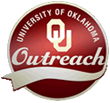A Guide to Assessment in Early Childhood
This guide prepared by Washington's Office of the Superintendent of Public Instruction discusses assessment of early learners from infant to eight years of age. As noted in its introduction, "The information provided in this guide is designed to be universally applicable in programs that serve young children with and without special needs, including English language learners, youngsters with economic and developmental risk factors, and those developing typically from birth to eight years of age." Though intended for Washington state educators, educators of early learners in other states may find its content useful.
Assessment in the Early Childhood Classroom
This link to the Utah Education Network (UEN) website provides an overview of assessment in the early childhood classroom. Though intended for Utah teachers, educators of early learning in other states may find its content useful. As noted at its website, "UEN connects all Utah school districts, schools, and higher education institutions to a robust network and quality educational resources."
Attributes of Effective Formative Assessment
This link connects to a paper describing five attributes of effective formative assessment. The paper is a Council of Chief State School Officers (CCSSO) work product coordinated by Sarah McManus of the North Carolina Department of Public Instruction.
Early Childhood Assessment for Children From Birth to Age 8
This document prepared by Pennsylvania's Early Learning Standards Task Force provide guidance to early childhood programs and school districts for the alignment of assessment and curriculum to the Pennsylvania standards for learning for children birth to age 8. Though intended for Pennsylvania educators of early learners, its general content may be useful to educators of early learners in other states. As noted in the report's introduction, "the focus of this report's guidelines is on the process of assessment for the purpose of informing teaching."
Formative Assessment: An Enabler of Learning
This resource is a Margaret Heritage authored article describing how formative assessment is an enabler of learning.
Formative Assessment: What Do Teachers Need to Know and Do?
This Margaret Heritage authored article describes "what the skillful use fo formative assessment looks like." Educators of early learners may find this article helpful with gaining an understanding of formative assessment.
Supporting Early Learning and Development Through Formative Assessment
This link is to a research paper on formative assessment of early learners prepared for Ireland's National Council for Curriculum and Assessment (NCCA). As noted in the paper's General Background section, "the paper responds to questions related to the what, why, and how of formative assessment in early childhood." Though intended for Ireland's educators, educators of early learners in other countries may find its content useful. As noted at the NCCA website, its purpose " is to advise the Minister for Education and Skills on curriculum and assessment for early childhood education and for primary and post-primary schools."
The Classroom Assessment KnowledgeBase
The Classroom Assessment KnowledgeBase is an online resource for state education agencies to use as part of their professional development efforts with districts and schools. Organized around five elements, it brings together concepts, how-to guidance, tools, and resources about classroom assessment.
